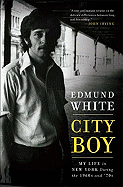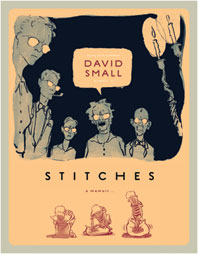Notes: Lost Symbol Enthusiasm; Good Old Days in Publishing
Today's New York Times surveyed the fall book season, leading with Dan Brown's Lost Symbol, which will be featured this week on the Today Show and includes an interview with Brown on pub date, a week from today. Booksellers expressed enthusiasm about The Lost Symbol and other titles coming out next week, including Senator Edward Kennedy's True Compass and Jon Krakauer's Where Men Win Glory.
"I think it's going to be a great week for bookselling," Kathryn Popoff, v-p for the trade division at Borders Group, told the paper. The company hopes to get customers buying The Lost Symbol to grab something else. "Our goal is with our merchandising and display to encourage people to buy another book while they're in the stores." About half of Borders stores will stay open after midnight on early Tuesday morning a la Harry Potter.
Some independents aren't excited about The Lost Symbol because of potential lost sales to major discounters and are more interested in books about subjects The Lost Symbol centers on, such as secret societies, the Freemasons, the founding fathers, etc. Still, Next Chapter, Mequon, Wis., will be open early Tuesday and is giving free copies of the book to customers who "commit to buying $100 worth of books in one sale."
---
In a move meant to blunt criticism from European authors and publishers, Google said it will "remove all European books that are still commercially available from its $125 million program to scan orphaned and out-of-print books in the U.S. and sell them online," the Wall Street Journal reported.
As a result, books on sale in Europe won't be in Google scans even if they're no longer available in the U.S.--unless the author wants them included.
---
"When
I grew up in publishing in the 1970s, the process and the tools were
relatively simple," recalled Joni Evans, former publishing executive at
Simon & Schuster and literary agent, in a wistful New York Times essay.
Evans
sketched a New York publishing world where "the process and the tools
were relatively simple. Marketing worked like this: whatever book that
Doubleday Bookstore chose to feature in its Fifth Avenue store window
(now Prada) usually became a best seller. The Book of the Month Club
judges--the Simon Cowells of their day--selected what they considered
the very best. We were a small community of authors, editors and
agents, and we were on fire."
While acknowledging the inevitable
Darwinian evolution of most aspects of the business over the past three
decades, Evans also noted that "it was our office archaeology that I
remember the most. There was a primitive chaos to it all--the hybrid
scent of tobacco and mimeograph ink, and the sounds of ringing phones,
of typewriters zipping along until the warning bell pinged near the end
of a line, and of the clack-clack-clack of the return handle as the
carriage reset. Our artifacts were sitting atop our desks: Rolodexes,
'in' and 'out' boxes and fountain pens that stained our blotters. And
dictionaries, atlases and all manner of reference books were propped
high over file cabinets."
Evans is a co-founder and C.E.O. of wowOwow.com, a website for women.
---
On NPR's All Things Considered, Cathy Langer, buyer at Tattered Cover bookstore, Denver, Colo., discussed the climate for bookselling as well as the great titles "her customers will be buzzing about this fall."
---
Congratulations to Melissa Broder, Berkley/Penguin Group publicity
manager, who after handling publicity for a range of books, has just
signed a deal for a book of her own. Her first collection of poems, When You Say One Thing But Mean Your Mother, will appear in February from Ampersand Books.
Broder is the curator of the Polestar Poetry Series at CakeShop
and won the 2008 Jerome Lowell Dejur Award as well as the 2008 and 2009
Stark Prize for Poetry. Her work has appeared in several journals,
including Opium, Shampoo, Conte and the Del Sol Review.
---
Bookstore
police blotter: "Less-than-enterprising burglars" broke into Books
Etc., Albany, Ga., last week and "made off with pretty much what could
be called chump change," according to the Herald.
Owner A. J. Bond said that "no one in the used bookstore business sits
on a pile of money from their efforts buying, selling and trading
mostly paperbacks." One thing police know for certain about the thieves
is that they are not big readers, since no books were stolen.
---
Obituary notes: Keith Waterhouse, whose best-known novel, Billy Liar,
"placed him at the forefront of a rising generation of working-class
writers from northern England," died last Friday, according to the New York Times. He was 80.
Western regional novelist Elmer Kelton has also died. He was 83. The Times
obituary praised Kelton, author of more than 60 books, for being "a
novelist who brought the sensibility of the old-style western to bear
on a modern Texas landscape of oil fields and financially troubled
ranches."
---
Shelfari
asked Neil Gaiman "if he'd be willing to give us a peek into his
personal library, and he graciously agreed. . . . Naturally we'd
assumed that someone whose work is filled with references ranging from
literary to mythological would have a fairly extensive library but even
so, we were a bit unprepared for the scope of what he sent us. In the
basement of his house of secrets we find a room that's wall-to-wall and
floor-to-ceiling with books (along with a scattering of awards,
gargoyles and felines)."
---
Craig Hetzer is joining Knock Knock, the Venice, Calif., gift and book publisher, as senior v-p, creative director. He has worked since 1991 at Chronicle Books, most recently as director of new retail business development, selling to independents in Southern California as well as such specialty retailers as Urban Outfitters, Anthropologie and Spencer's Gifts.
---
The following changes have been made at Nicholas Brealey Publishing North America:
- Nicole LeBlanc has joined the company as marketing director. She was formerly senior marketing manager at McGraw-Hill Professional and Springer Science & Business Media.
- Erika Heilman has been named editorial director. Before joining the company six years ago, she worked at Wiley and Petersons/Thomson and had her own publishing consulting business, Working Titles.
- Jennifer Olsen has been promoted to associate editor. Before joining the company four years ago, she was on the editorial staff of Texas Monthly magazine.







 "I was lucky to live in New York when it was dangerous and edgy and cheap enough to play host to young, penniless artists," writes Edmund White in this exuberant, thoughtful memoir. Arriving in 1962 and determined to be famous, he found a job in publishing and got to work on his dream. Away from the office, he dedicated his energy to meeting people (some famous, some not) and, of course, having sex with lots and lots of men. Ambition, amphetamines, neurosis and an era when New York vibrated with desire combined for heady times in his young life.
"I was lucky to live in New York when it was dangerous and edgy and cheap enough to play host to young, penniless artists," writes Edmund White in this exuberant, thoughtful memoir. Arriving in 1962 and determined to be famous, he found a job in publishing and got to work on his dream. Away from the office, he dedicated his energy to meeting people (some famous, some not) and, of course, having sex with lots and lots of men. Ambition, amphetamines, neurosis and an era when New York vibrated with desire combined for heady times in his young life.
